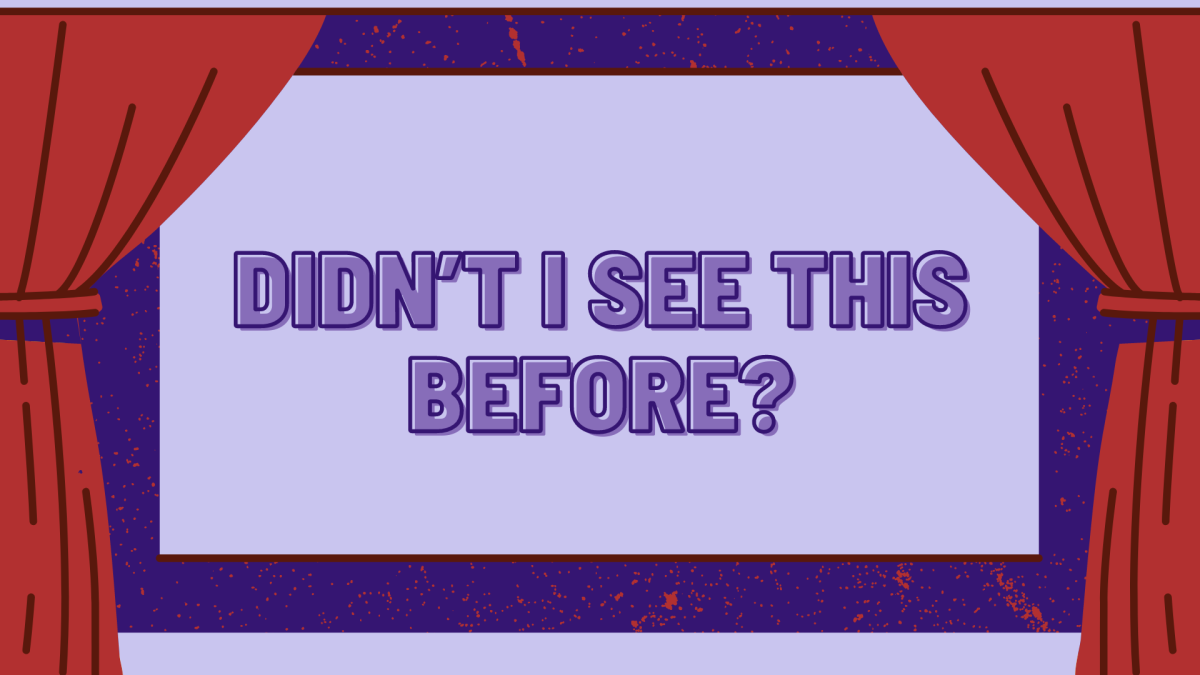The cinematic experience of watching a new movie is unlike any other. The smell of buttered popcorn, sweet candy, and sugary soda imbues the entire theater. Then there’s the internal battle of picking the perfect seat. A quiet hush scours over the theater once the lights dim and the movie begins to play and the audience realizes that they’ve seen this story before, several times.
There’s a serious problem in Hollywood, one that prioritizes cheap production and statistics over real creativity. As a result, all that’s left in the theaters are cringeworthy remakes, disappointing sequels, and boring prequels. If not a straight remake or extension of the original, it follows reimaginings of the same structure, plot, cliches, and morals as the same set of original classics.
Though disappointing, entering 2024 this pattern isn’t entirely new. For the past several years, the highest-grossing movies have nearly all been remakes, reimaginings, sequels, or prequels.
In 2023 the top 3 grossing movies were “Barbie,” “The Super Mario Bros. Movie,” and “Spider-Man: Across the Spiderverse.” In 2022, four of the five highest-grossing movies of the year were sequels, “Black Panther: Wakanda Forever,” “Doctor Strange in the Multiverse of Madness,” “Avatar: The Way of Water,” and “Jurassic World: Dominion.” In 2021 the three highest-grossing movies were “Spider-Man: No Way Home,” “Shang-Chi and the Legend of the Ten Rings,” and “Venom: Let There Be Carnage.”
As audiences, people tend to form a connection or bond with great nostalgic stories and characters. This existing bond leaves audiences wanting more from their favorite stories, to relive the experience of watching the original in theaters, or to simply feed their curiosity of seeing how each story continues.
The film industry banks on the recognition of already successful stories to draw in devoted audiences through nostalgia value. They can cheaply add onto or re-do already existing stories with little to no creativity while reaping their success because audiences already know the story. That connection draws in the established fanbase and therefore box office revenue in a way that original movies can’t.
At this time, paying writers to make original content is expensive and risky. Additionally, the advertising that is needed to promote original movies is generally a lot greater than what is needed for any remake, reimagining, prequel, or sequel. Building a fandom from the ground up is costlier, difficult, and doesn’t always pay off. Hence, the film industry sticks to what is tried and true.
“Remakes, in general, are a result of necessity being the mother of invention,” said screenwriter and director John Carpenter, famous for the original Halloween movie and its sequel, in an interview with the Collider. “They can’t open movies consistently and break through the advertising clutter that’s out there.”



Willa Magland • Feb 9, 2024 at 9:57 pm
You hit the nail on the head. Recently I’ve been sticking with older movies that I *know* will be good / were renowned in their time. A24 is also a good bigger studio that delivers pretty solidly. Very nice article 🙂